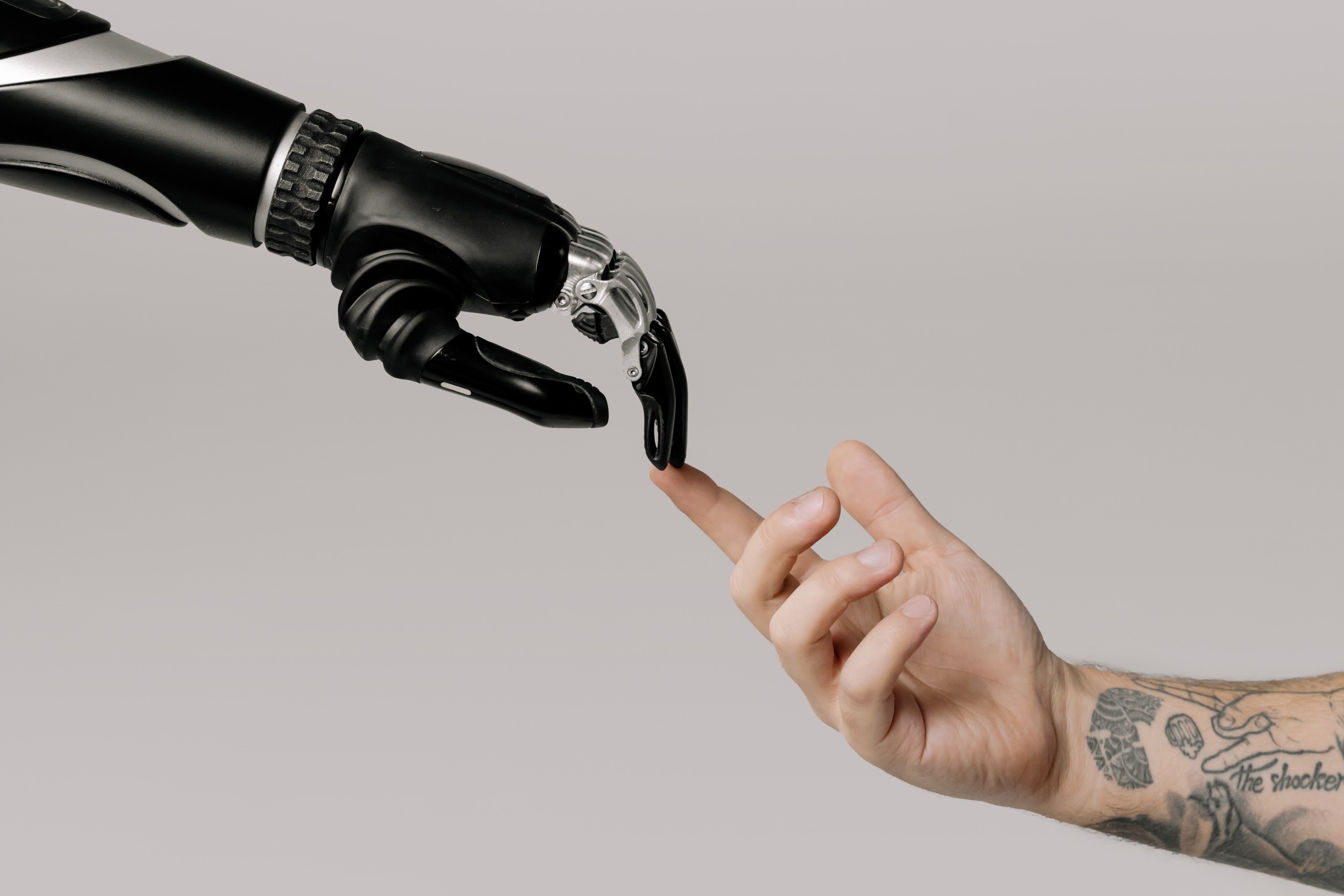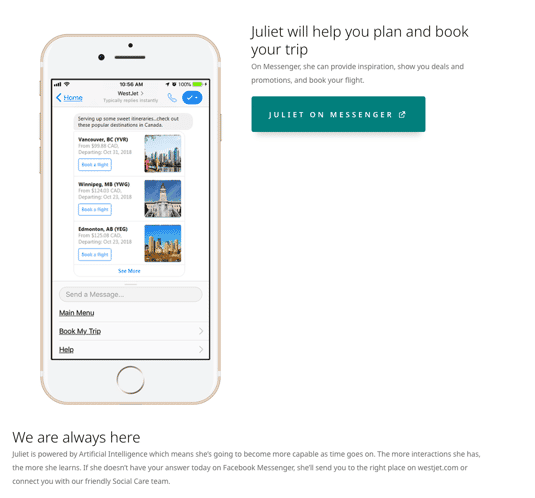The Importance of Humility in Marketing
There are countless articles written about humility as a crucial leadership characteristic, but it's also valuable in marketing. For years, we've...

Artificial intelligence (AI) is revolutionizing marketing by providing new opportunities for businesses to understand their customers better, automate their marketing campaigns, and personalize their marketing messages.
With the increasing amount of data available today, AI-powered tools can help businesses to process, analyze, and extract insights from data that would have been impossible to do manually. Still, some have concerns about its use.
One of the biggest challenges that marketers face is understanding their customers.
Marketers often rely on focus groups, surveys, and other market research to gather insights into customer behavior. While still used, these methods are time-consuming, expensive, and can sometimes produce incomplete or biased data.
AI can help marketers to understand their customers better by analyzing their online behavior, preferences, and interactions with the brand.
AI-powered tools such as chatbots, virtual assistants, and recommendation engines can gather data on customers' preferences, interests, and purchase history.
This data can help personalize marketing messages, suggest products or services that the customer might be interested in, and offer promotions tailored to their needs.
For example, a recommendation engine can analyze a customer's purchase history and suggest products similar to the ones they have bought in the past. This both improves the customer experience and increases the likelihood of a repeat purchase.
AI-powered tools can also help marketers to automate their marketing campaigns.
Traditional marketing campaigns require a lot of manual labor, from creating content to sending out emails and analyzing the results. AI can automate many of these tasks, allowing marketers to focus on strategy and creativity rather than repetitive tasks.
A familiar example of how AI is automating marketing campaigns is through programmatic advertising.
Programmatic advertising uses AI to buy and place digital ads automatically. This includes targeting specific audiences, bidding on ad placements in real time, and optimizing campaigns based on performance data.
By automating the ad-buying process, marketers can save time and money while reaching their target audience more effectively.
Personalization is a key trend in modern marketing. Customers expect brands to understand their preferences, interests, and needs and to tailor their customer experience and marketing messages accordingly.
AI-powered tools can help marketers to achieve this by analyzing customer data and creating personalized marketing messages that are relevant and engaging. Whole Foods Market, which is owned by Amazon, has started using Amazon's "Just Walk Out" technology is some stores. The technology consists of hundreds of cameras and sensors throughout the store that monitor and analyze customer behavior to detect patterns and increase the accuracy of its charges.
Another example of how AI is being used to personalize marketing messages is through dynamic content. Dynamic content is content that changes based on the user's behavior, preferences, or other data points.
For example, a website might display different product recommendations based on the customer's browsing history, or an email might include different content based on the recipient's location or purchase history. By personalizing content in this way, marketers can increase engagement and conversions.
AI can also improve the customer experience by providing faster and more personalized customer service.

AI-powered virtual assistants and chatbots, like WestJet's Juliet AI Chatbot shown above, can answer customer inquiries, provide product recommendations, and even complete transactions without the need for human intervention.
This can not only save time and money but also provide a seamless customer experience as the AI becomes continues to learn and become more effective with each customer interaction.
Another way that AI is improving the customer experience is through predictive analytics. Predictive analytics uses AI to analyze data and identify patterns and trends that can help anticipate customer needs and behavior.
For example, a retailer might use predictive analytics to forecast demand for a particular product, allowing them to stock up in advance and avoid stockouts. By anticipating customer needs, businesses can provide better customer service and improve customer satisfaction.
While AI offers many benefits for modern marketing, challenges and ethical considerations also need to be addressed. One of the biggest challenges is the quality of data.

AI-powered tools are only as good as the data they are trained on, and if the data is incomplete or biased, then the insights and recommendations generated by AI can also be incomplete or biased.
This is particularly important when it comes to personalization, as personalization based on incomplete or biased data can lead to discriminatory practices.
Another ethical consideration is privacy. As AI-powered tools gather more and more data on customers, there is a risk that this data could be misused or mishandled. This has led several tech leaders to call for at least a 6-month pause in AI development.
Businesses need to ensure that they are transparent about the data they collect and how it is being used, and that they are following best practices for data privacy and security.
Finally, there is the risk that AI could replace human jobs. While AI can automate many of the repetitive tasks involved in marketing, there is still a need for human creativity and strategy.
Businesses need to ensure that they are using AI to complement human skills rather than replace them and that they are providing training and education for employees to learn new skills that are relevant in a world where AI is becoming increasingly important.
Regardless of whether a pause occurs, it's clear that AI is on its way to transforming marketing, in addition to many other industries and professions, by providing new opportunities for businesses to understand their customers, automate their marketing campaigns, and personalize their marketing messages.
Sign up for our monthly newsletter to receive updates.

There are countless articles written about humility as a crucial leadership characteristic, but it's also valuable in marketing. For years, we've...

Last updated: February 4, 2026 | Originally published: November 6, 2023
![Why Your CFO Doesn't Trust Marketing & How to Fix It [Free Template]](https://www.mightyroar.com/hubfs/CMO%20CFO%20Budget%20Meeting.jpg)
Build trust with your CFO by replacing scattered marketing metrics with a focused measurement system: pick 1-2 conversion events finance already uses...